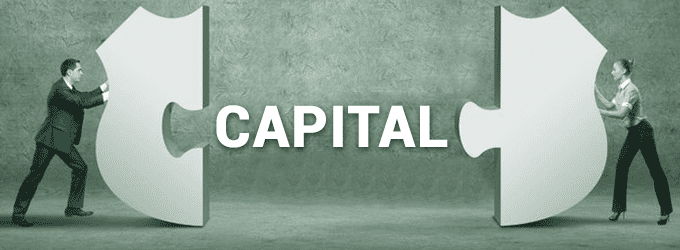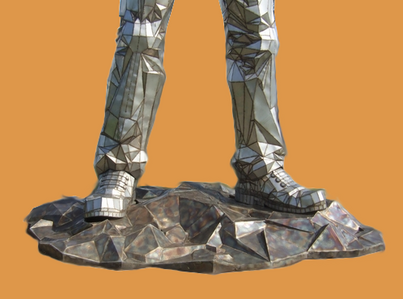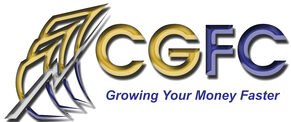Capital is Critical in Start-up

In his book Small Business Management, Michael Ames gives the following reasons for small business failure:
- Lack of experience
- Insufficient capital (money)
- Poor location
- Poor inventory management
- Over-investment in fixed assets
- Poor credit arrangements
- Personal use of business funds
- Unexpected growth
Gustav Berle adds two more reasons in The Do It Yourself Business Book:
- Competition
- Low sales What is the common thread – Poor Planning!
Let’s look at the words starting with “C”, insufficient CAPITAL, poor CREDIT arrangements, and COMPETITION.

One area that is sadly overlooked when starting a business is start-up capital. Start-up capital is the amount that you need to have before you open your doors. This is the money set aside in the bank that will carry you through the lean months so that you can pay your fixed expenses, variable costs, and your salary. The rule of thumb is that you use 25% of your capital to start your operation. Another 25% is used for growth. You can generally tell when the initial excitement phase is starting to wind down. People quite often go see a new business out of curiosity and your early marketing. Once this phase is done you need to seed your growth phase. The next 25% is your emergency money, when your back is against the wall. Finally you have secreted the final 25% in the event things don’t go as you planned and you need a parachute out.
So how do we determine what the start-up costs are? We start by trying to get a good handle on our fixed expenses. These are the expenses that will occur regardless if we make any money what so ever. A list of these would be: rent, telephone, hydro, advertising (I believe that advertising is a necessity, therefore qualifying as a fixed expense. You have to advertise when you first open up to let everyone know that you are in business), auto insurance, office supplies, and utilities.
Oh yes, I almost forgot (just kidding), your salary. Most photographers I know pay themselves if and when there is any money left over at the end of the month. This is not acceptable! Be proud of what you do. Be positive about what you do. Most important – pay yourself. If, and I say this in only the most hypothetical of situations, if you go broke do you think anyone is going to take pity on you and give you any money back. Hell no! So pay yourself and make sure that this is a habit that you continue. It provides a huge psychological boost each and every month, one that pays dividends in the end. (No pun intended.)
From there you try to figure out how many photo sessions you will be taking. Break it down into specific numbers, how many sessions a day? After that, determine what your costs are per session. How much film and processing? How many prints or paper will you use? These are called your variable expenses, expenses that are incurred only when you do something. Then figure that if you work 20 days that month what your costs will be on a monthly basis.
We now add the third dimension – hard costs. If you are starting a studio or office location, you will need furniture, fixtures, and equipment. Equipment can be cameras, computers, desks, and file cabinets etc. Go through catalogs and find out how much you will need to spend on these items.
After this is all done we add them together, six months of fixed expenses, six months of variable costs, and your hard costs, this will amount to what your needed start-up capital is. Then make sure that you have that covered. This can be done with a combination of your cash, bank loans, line of credit, or investors. Just make sure that you have six months’ worth of start-up capital. This is your first 25%.
Your secret to success is:

- The right tools
Having the right tools is critical. What I mean by the right tools is making sure that you don’t skimp and buy only the tools that you can rely on. Your speed, efficiency, and ability to get the job done perfectly the first time is essential. Photographers love gadgets and toys – be smart, don’t always jump to the latest and greatest till you need the latest and greatest at a good price. Before you make a purchase determine how long it will take for you to pay for it. How photo sessions or jobs will it take to recoup your expense.

2. The right workspace
If you are in business for yourself chances are that you spend the majority of your time there. In order for that to be a pleasant, encouraging, intellectually stimulating, creativity inducing place make sure that it is comfortable and inviting. The key is that you work there and unless you have clients visit you there it doesn’t need to be excessive, just comfortably productive.

3. Spend money on where you touch the customer
Clients pay the bills. You and your employees bring the customer in. With that in mind, ask yourself will this improve the experience for my customers, does it increase productivity, and how long will it take for me to get my money out of this? We can always improve, tweak, embellish later on. In the beginning it is important to be functional and productive. I have a friend that used to own a Mercedes because he could afford
Any money you earn by taking pictures will be gravy. Hopefully it will be enough to cover all of your fixed and variable expenses, but if it doesn’t you have your back up plan. It is better to spend a lot of time planning and being prepared as the old saying goes, “Failing to Plan, is Planning to Fail!”
Generally it takes three to five years to get your feet firmly planted on the ground and your roots dug deeply into it. If you use my proven system you should be up and running within a year, check into my personal coaching program to ensure your success.

 |
Chuck Groot’s CPA, MPA, MBA credentials as an author, teacher, business coach and entrepreneur are noteworthy. His clients credit their success to his uncanny ability to get right to the root of any challenge that they put in front of him. He credits his success to his clients and their willingness to being open to new ideas and desire in pursuit of excellence. As an entrepreneur, his enthusiasm and innovative approach have garnered him both professional success and the recognition of his peers. But his greatest delight is being able to share these skills with others and enabling them to be successful on their own. I would really like to hear what you think about this article. Drop me a line and let me know how you feel about it? |

Great looking site. Assume you did a great deal of your very own html coding.
my webpage {link://Www.askmap.net/location/5818816/indonesia/sadsadsad}poker{/Link}